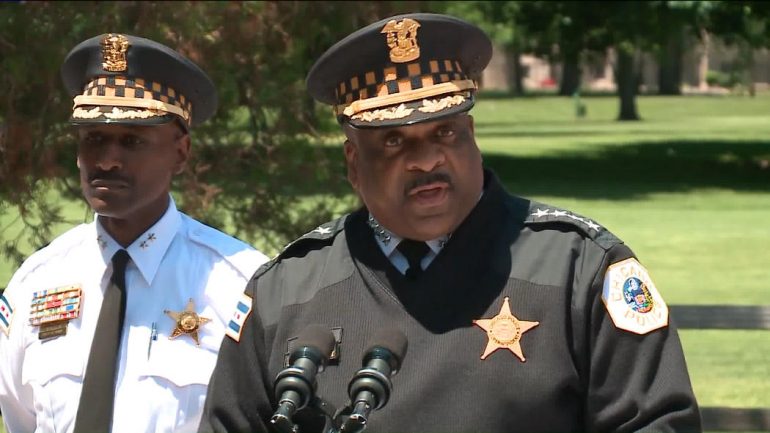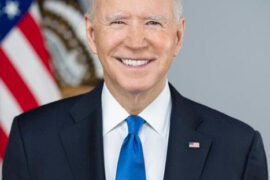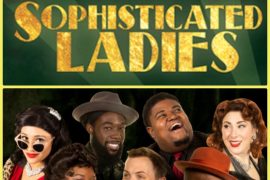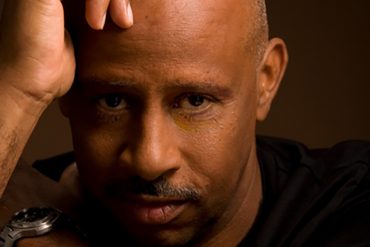We’re chatting today with the new Superintendent of Chicago’s Police Department, Eddie Johnson. Thank you so much for agreeing to see us.
Let’s get right to it what do we do about this soaring crime in Chicago?
There are a few things. First, my challenge is to restore the trust that the community has in the police department because I firmly believe that a police department is only as good as the faith that the community has in it.
How do you do that?
By talking to them, having dialogue, letting them see there’s a different CPD than it was maybe 10 years ago, five years ago, or even five months ago. Anybody that lives in Chicago deserves to have their voices heard. I might not agree with what they say, but I am willing to listen to them. I think that if you establish that trust, people would be more inclined to give us information when we’re trying to resolve some of these disputes out here that drive our gun violence.
How much of it is racial?
The distrust? Well, you know what? I’d be the first to admit there is racism within the police department and I admit that we have treated different sections of the city differently. My challenge is to make sure that we don’t do that.
Now, let me say this the majority of police officers are professional, respectful and treat people fairly. Those that don’t want to engage in the correct behavior, then we have to get rid of them.
Are your hands tied or do you have freedom, given the Fraternal Order of Police? How does that restrict you?
It has some restrictions. I think that both sides have to be flexible in the way that we do business. For example, if an officer committed an egregious act right now and it was on video, I don’t have the authority to terminate that person today. There’s a process, but that process is also in place to protect officers against false allegations. So there’s some give and take on both sides of that equation.
But you do have to go through a legal process, hearings, and all that on both sides so everybody can have some equality there.
Correct.
You’ve been a policeman for 28 years. How has it changed since you started?
I think the biggest thing I can point to right now today is the perception that when police come in contact with people that they have the right to resist police officers. When I first started, they may not have liked us or even wanted us around, but they did give us the respect to do what we told them to do.
These days you have more confrontation with people than you used to, so somehow it’s gotten twisted where people think they don’t have to comply with direction from police officers.
How do you change that? How do you change it back? As a kid you would never question the authority of a policeman; you would just comply with whatever it was. That’s not true today. How do you deal with it?
I think we need to educate the public better on why police do what they do and what to do when you have an encounter with police officers. At the same time, I have to make sure that police officers are conducting themselves professionally whenever they have interaction with the public.
Do you need re-training?
I think re-training has something to do with it because training is a perishable skill and the further away you get from your original training, you lose some of that skill. So CPD has to do a better job of re-training our officers; yeah, I’ll agree with that.
Is it better for Black policemen to police the Black community and White policemen to police white communities?
I think you have community people that do want to see more people that look like them, but I think both can police both neighborhoods. We just have to recognize and treat people fairly. To that end, we’ve started something new in the last couple of months since I’ve been superintendent.
We’re pairing up new recruits with minority high schools so that they can facilitate peace circles so that those police officers get to know the communities that they will possibly serve. Conversely, it lets those young men and women see the police officers as human, too.
How do you feel when we see what happened in Dallas and Baton Rouge; we see angry military guys killing, shooting policemen?
Honestly it makes me sad because these issues didn’t happen overnight; these are years and decades in the making. It’s just sad that those police officers in Dallas died protecting the people that were protesting them.
They had nothing to do with the events that led up to that, but it just shows you how incredibly difficult this job can be. But the police officers still come to work everyday. They swore an oath to protect and serve and for the most part, all of them do that.
On the other side of that, as a Black man, how do you feel when you see the Trayvon Martins, when we see some of these murders and assaults that are done by policemen? That’s the other side of the coin that makes you afraid. How do you feel about that?
It’s difficult. It makes me think about what we can do better and I think that, again, going back to educating the public more on how to interact with police and ensuring that the police have the training that they need.
One of the things when I go to community events that I stress to people is to, as much as you can, be compliant with police officers. That would cut down a lot of the friction.
Here’s the thing when police respond to incidents and they give you a lawful direction to do something and you don’t do it, it’s not like your schoolteacher that will say, Okay then, I’ll come back next week when you’re feeling a little bit better.˛
If you don’t do what the police officer tells you to do, they’re going to make you do it and that’s going to result in a physical confrontation that typically isn’t going to end well for somebody.
It breaks my heart that we’re having these issues, especially drawn along racial lines, but I am optimistic that we can straighten this out, and dialogue is how you get there.
So let’s say a person is stopped on the street and it seems that Black young men are being targeted by policemen what’s the proper protocol for that young man to engage with the policeman so that he does not get hurt or in trouble? What should he do? You just stopped me, police, my taillight is out. What do I do?
What I would say to you is that if you got stopped like that, always keep your hands on the steering wheel until the police officer tells you to retrieve an item like your driver’s license. And be respectful. If you start off the event with the officer and you are confrontational, then that heightens that officer’s sense of what’s going on also.
So keep your hands on the wheel. It’s fine to ask the officer what did you do, and then be compliant, and don’t move until the officer tells you to move.
So if he has his driver’s license in his pants pocket or in the glove compartment to go and pull it out, or not to go and pull it out?
No. Once that officer asks you for your driver’s license, say officer, it’s in my back pocket, can I reach for it? Officer, it’s in my glove box, can I reach for it? The officer is going to say yes, so that’s when you do it.
Should the officer reach for it?
No, most officers are going to let you reach for it because they have you in plain sight and they can see what you’re doing. If you’re complying with them, then that stress level is on zero right now.
Stay in the car or get out of the car?
It depends on what they tell you to. If they tell you to get out, then you get out of the car. They will give you direction on what they want you to do.
Should you ask for the direction?
Yeah, you can.
What if I’m not on a busy street, should I go to a busy street so I can have some viewing activity, or should I drive to the station?
Yes, you can say to the officer, I don’t feel comfortable right here. Is it okay if we drive to the station or to a well-lit area? But you can always ask the officer to call for a supervisor if you feel uncomfortable with the way things are happening at that point.
The key is to get permission from the officer as to what you should do, rather than I’m just going to drive away or I’m just going to reach for?
Exactly. That’s the key. Ask for the direction that you’re looking for. Ask the officer is it okay to do this or that, and let the officer guide your decision.
We have a problem with gangs. One side of this crime coin is policemen maybe doing some things wrong, some policemen. But how do you deal with the gang problem. We just had a six-year-old shot the other day on her grandparents’ porch. That should be the safest place in the world for a six-year-old. Policemen did not shoot her. Some gang people shot her. What can policemen if anything do about that and what can we do about the gangs? We take it for granted that gangs are a given.
 The crime in Chicago is everybody’s issue, not just the police’s and it’s going to take everybody in Chicago to help resolve this issue. Chicago gets a bad reputation for crime. We have roughly 2.6 million people in the city of Chicago. We’ve identified roughly 1,400 individuals that are driving most of our gang violence.
The crime in Chicago is everybody’s issue, not just the police’s and it’s going to take everybody in Chicago to help resolve this issue. Chicago gets a bad reputation for crime. We have roughly 2.6 million people in the city of Chicago. We’ve identified roughly 1,400 individuals that are driving most of our gang violence.
This year to date since January, all of our shooting victims we have a list called the Strategic Subject List. Those are people that we know will either be the victims of gun violence or the perpetrators of gun violence because of their interaction with law enforcement up to this date. 85 percent of our shooting victims this year are on that list.
What that tells us is that most of the people that are getting shot choose to live that lifestyle. So this is what I say: First of all, we need the communities to be more active in terms of policing their own communities, and share information when they know it.
Second thing is, the CPD has recovered one illegal gun per hour for every day of this year. Every hour. We have recovered more guns than New York and L.A. police departments combined. That’s not because we’re so much better than them; it’s just that’s the proliferation of guns on the streets of Chicago.
But getting back to these 1,400 individuals your police department is doing a great job arresting these individuals. Where we’re dropping the ball is holding them accountable for the repeat gun offenses that they commit, so we need our judicial partners and our legislators to help us hold these individuals accountable. If we knock that down, we’ll knock down the gun violence in Chicago significantly.
The other way is, if I had a bucket and I could just put jobs in that bucket and go around to some of these impoverished neighborhoods and pass those jobs out, we’d see the crime level come down.
That’s part of it, the unemployment. What about the guys getting out of jail and they have no jobs?
I’m glad you asked that because the other part of it is that we need our correctional institutions to correct. I don’t think there’s enough focus and I’m not blaming them or pointing a finger I just think we need to give them more support in offering services to change people’s behaviors.
For instance, the 1,400 individuals I was talking about we will go knock on their doors and offer them services to help get them back on the right track.
That’s great. How do they respond to that?
We’ve actually had good response. Some of them accept the help and some of them don’t, they turn us down cold, but if we can get one every time we go do this, then that’s one worth doing it for.
We actually go to their houses and let them know, hey we know that you’re going to be a party to violence either the victim of a shooting or perpetrating the shooting, and we talk to the family members, because a lot of the time, if you have a wife, a girlfriend, a grandmother, they can put pressure on that person to change their behavior.
What about gun control?
I think we have enough gun laws. I just think we need to do a better job of enforcing them. But we also need some help because Illinois borders two states that have very lax gun laws, that’s Indiana and Wisconsin. So we do need to take a look at holding people more accountable if they go across state lines, purchase weapons, and then distribute them to the gangs here.
Do you think the guns in particular communities are imported
intentionally?
I don’t know about intentionally. I do know gang members do everything that they can to retrieve them. If you’re asking if I think other folks are intentionally dropping them, I really couldn’t say.
How do we get rid of the gangs?
By giving them a different outlook on life. I’ll tell you this you show me a guy without hope and I’ll show you a guy that’s willing to pick up a gun and do anything with it. We need to give these people some hope.
All the social ills of society have been dropped at the doorstep of most police departments. We’re just not equipped to deal with all the social ills in the world, so I think that if we focus more on trying to turn these communities around and invest in them, then we could help kind of stave off some of this crime.
Are we asking policemen to do too much? You leave home as a patrolman everyday, you have no idea what your encounters are that day from an auto accident to save the baby to the coyote is loose to the traffic stop are we really asking you to do too much?
The people that take on this job like myself, personally, I get reward by helping other people and I’m sure most police officers do. I think most police officers are willing to do whatever it takes to make the day better for someone else. So I wouldn’t say we’re asking them to do too much; we just have to make sure we properly train them to be able to handle all of these situations.
What’s the difference between a policeman on a horse, on a bike, in a car, and on walking patrol?
When they’re in cars, they have less contact with the public because they’re surrounded by steel on all four sides. But I think bicycles and foot posts and even on horseback gives them more interaction with the public and I think that’s a good thing because then the public gets to see these officers as people.
At the end of the day, the mission for police over the years has changed. Where we were initially enforcers, I think we have to look at it more as a partnership with the communities now. If we’re partners with the community, they will accept what we do a whole lot better.
What about the cameras? That’s a new element in our society that affects the police, the classroom, everything. What if I’m stopped and pull out my phone and start taping good, bad, how has it changed policing?
Personally I like the cameras. We’re pushing to have all police officers in Chicago equipped at some point with body cameras. At the end of the summer, we’ll have seven districts fully outfitted in body cameras.
What it does is make your police officers be more professional because they know they’re being recorded. But when we let citizens know we’re recording them, it also changes their behavior. So everybody becomes accountable. I think it’s a win-win.
I personally embrace the cameras. Plus it gives police the opportunity to tell our side of the story as to it always being somebody else’s video. So I like it the truth be told and the truth is what it is and if we make a mistake then we need to fess up to it, own up to it, and correct it.
As Superintendent, what do you want to come out of your administration?
I want to make CPD better than it was when I got here because if I can make CPD better and make the relationship with the community better, that’s a win-win for the police department and the city of Chicago.
I want to see CPD get better because I acknowledge we’re not perfect. We may never be perfect, but we can strive to get there, so that’s what I actually want.
You’ve already made a difference. There’s a difference with you here than when you were not here. People talk about they saw you on the street. That in itself is a difference because we don’t always see the superintendent. We see the superintendent at special things, but we don’t see you walking the streets. That’s intentional for you, isn’t it?
Yes it is. I like making a difference and I actually like being out on the street. So you’ll be seeing me out there a lot.
It keeps your ear to the ground so rather than somebody
telling you, you know first hand some instances. Last question, do we have equal policing in all of Chicago’s communities? Is there a difference between policing in Lincoln Park versus Englewood, for example?
If you want an honest answer, I would have to say yes because the threat of violence is probably lower (in Lincoln Park), so the officers go into that with that mindset. So now my challenge is to make sure that it’s equal all over Chicago and that’s what I’m striving for.
How do you do that?
By educating our officers and training them, that’s how I do that. And making the department more diverse will help also.
So that means there’s some Black officers in Lincoln Park and white officers in Englewood, and a mixture?
Correct.
How do policewomen do? We always hear about police men, they seem to be doing some shooting, but we don’t hear about the women. What do the women do that’s different than what police men do?
I think just by nature, women are less aggressive than men are. I remember a range instructor told me once that women are actually easier to train in firearms tactics than men are because they don’t have preconceived notions. I think that tactically, females do really well because they listen more.
Does that same variable carry over to the street that they listen more and therefore you have less confrontation?
Yes, with females yeah, I believe so.
Anything else you might want to say?
I just want the city of Chicago to know that I’m working hard for them and your police department is working hard for you.






